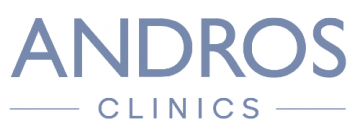BACKGROUND
Andros Clinics is an independent clinic specialized in urology and the expert in the field of prostate cancer, prostate complaints, erectile dysfunction, testosterone deficiency, male sterilization and bladder complaints in both men and women. With four locations in Amsterdam, Arnhem, Baarn and Rijswijk - The Hague, a team of 150 employees and 16,000 patients treated in 2023, the clinic continues to grow by 15% annually. In 2024, Andros Clinics celebrated its 20th anniversary. Maartje Zonderland, director at Zonderland & Van Zeijl BV, supported Andros Clinics in the implementation of tactical plans in the second half of 2024.
CHALLENGE
The considerable growth of Andros Clinics brought with it various challenges in the area of five themes within the planning: operational OR planning, operational personnel planning, capacity planning, professionalization planning and the planning office. The challenges within these themes led to long waiting times, too low productivity and high personnel costs.
Operational OR planning
Within the operational OR planning, the list of requests was often contaminated, requests were regularly made while patients were still in doubt and it was often unclear for which OR a request was made.
Operational workforce planning
Bottlenecks were also seen in personnel planning. Team leaders had insufficient responsibility for the planning process, which meant that employees themselves had a direct influence on the planning. In addition, a short planning horizon of a few weeks was maintained, changes to the planning were regularly implemented last-minute, employees received standard approval for their requests and there was a lot of ad hoc work.
Capacity planning
In the area of capacity planning, patient demand and care supply were not always optimally aligned and there was insufficient insight into production per consultation hour due to variation in the schedules per doctor. In addition, there was a lack of insight into the relationship between the financial budget and the available capacity, such as the maximum turnover that could be achieved within the contracts with health insurers.
Professionalization of planning
The professionalization of the planning process also offered opportunities for improvement. For example, there were no possibilities to work with plus and minus hours, fixed schedules were used as standard and overcapacity and a mismatch between services were not an exception.
The planning office
The planning agency faced organizational challenges, such as planners having to continuously focus on exceptions
APPROACH
With the help of a short Quick Scan, Maartje identified the bottlenecks surrounding patient and staff planning. She worked closely with Ruud Sijbers, COO at Andros Clinics, and Mascha van Huet, head of the planning office. The Quick Scan revealed that planning should be approached from a more helicopter perspective, with a stronger focus on the medium term. To arrange this, a Tactical Planning Consultation (TPO) was initiated. The TPO offers tools and structure to look at planning in a more strategic and efficient way. Questions such as 'What is coming our way?', 'What capacity and staffing, such as urologists and nurses, are needed?' and 'What capacity is available?' are answered concretely during the TPO to create more balance between patient demand and healthcare supply.
This structured approach allows Andros Clinics to look further ahead and plan. This allows Ruud and Mascha to estimate in good time whether they need to close or extend consultation hours. A concrete example is the patient stop at the end of 2024 for patients insured with VGZ. These patients could no longer be scheduled due to the production ceiling being reached at the end of 2024 and are expected to report back at the beginning of 2025. Andros Clinics can respond to this by, for example, scheduling patients who have a repeat consultation and are not insured with VGZ in December. This creates space in January for VGZ-insured patients. This gives more control over the planning and allows for more guidance in good time.
RESULT
This approach has led to substantial professionalization of planning at Andros Clinics in a short period of time. The planning office now works proactively instead of reactively, which has created more peace and space for structural tasks. In addition, each Andros Clinics location now has its own team leader who is responsible for operational tasks, such as managing absenteeism. As a result, the activities within the planning office are clearly defined and the workload has been significantly reduced. A longer planning horizon of three months is also used. Furthermore, more insight has been gained into the capacity management of Andros Clinics. Questions such as 'How can we optimally fill services with staff?' and 'How can we schedule patients for this?' are now structurally answered. In addition, the doctors' grids have been standardized with fixed blocks for both new and control patients. This contributes to a more efficient planning process and better utilization of capacity. As a result, the 15% growth in 2024 could be accommodated with approximately the same number of staff. This would not have been possible without the implementation of tactical planning.



